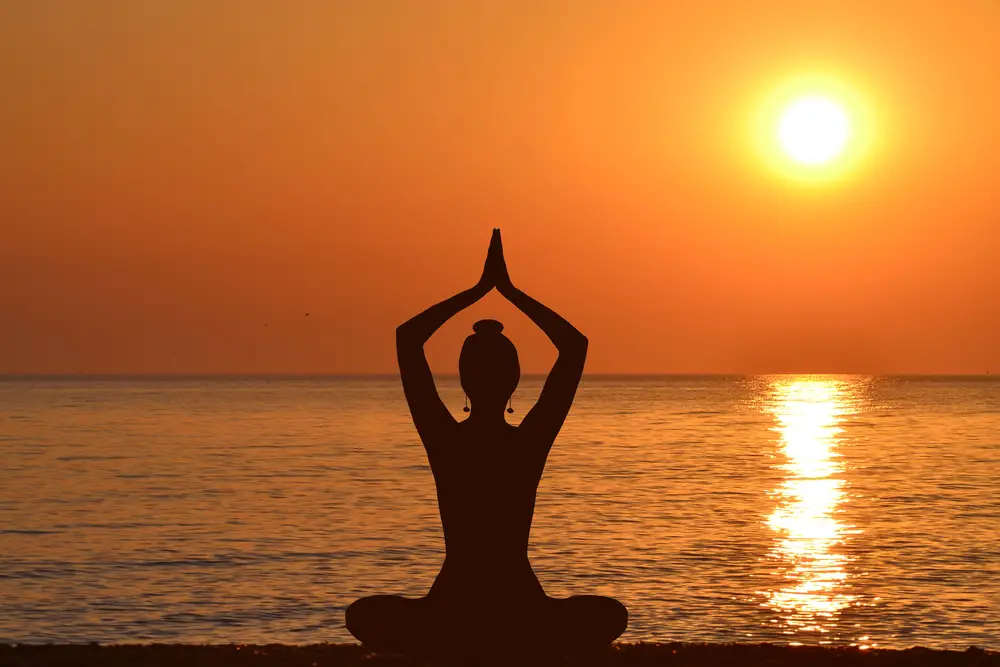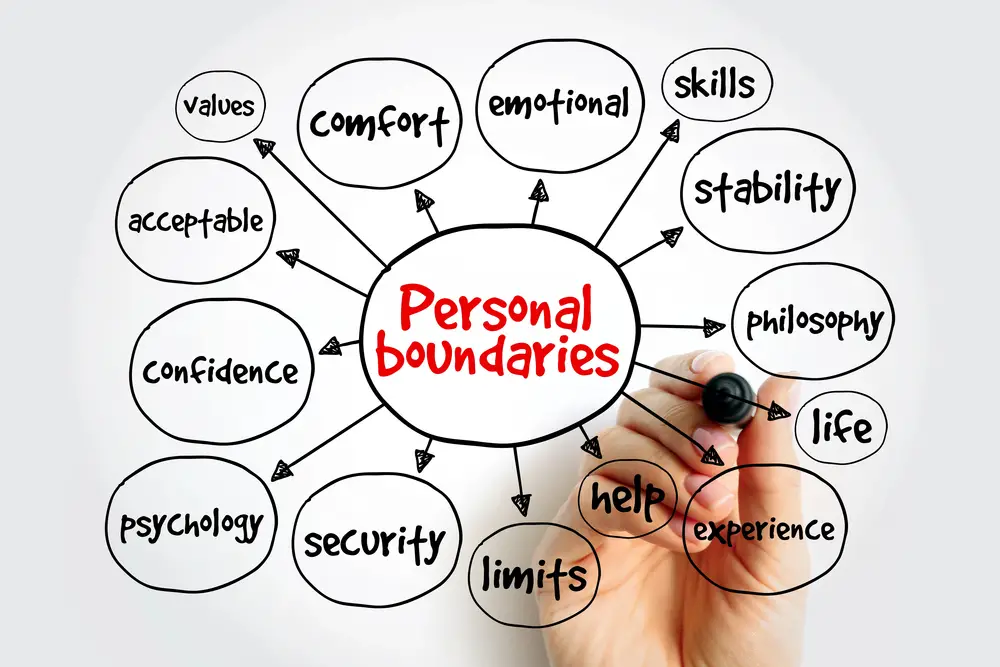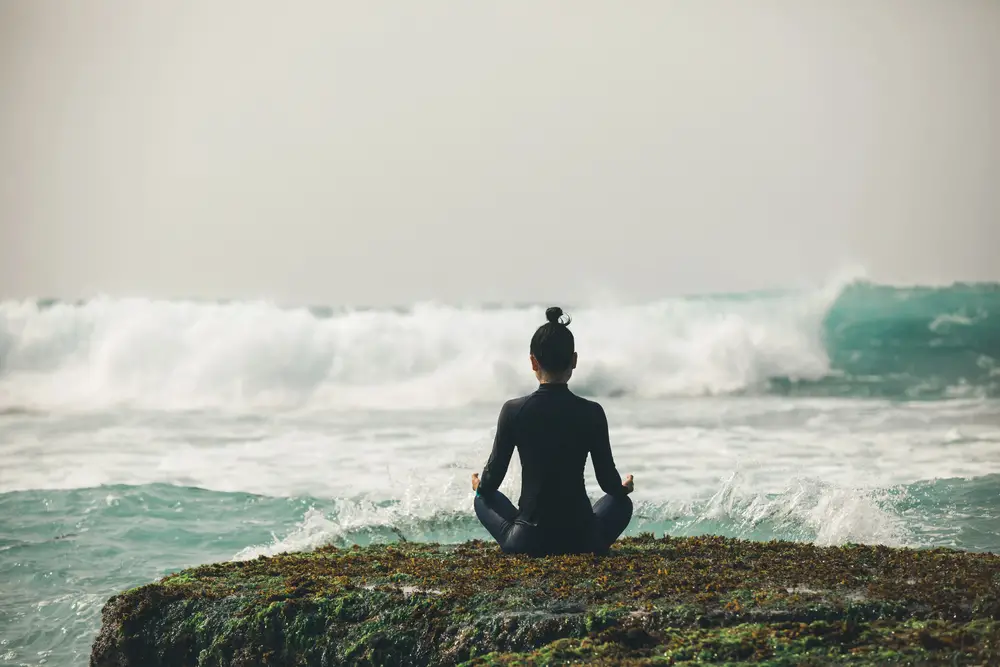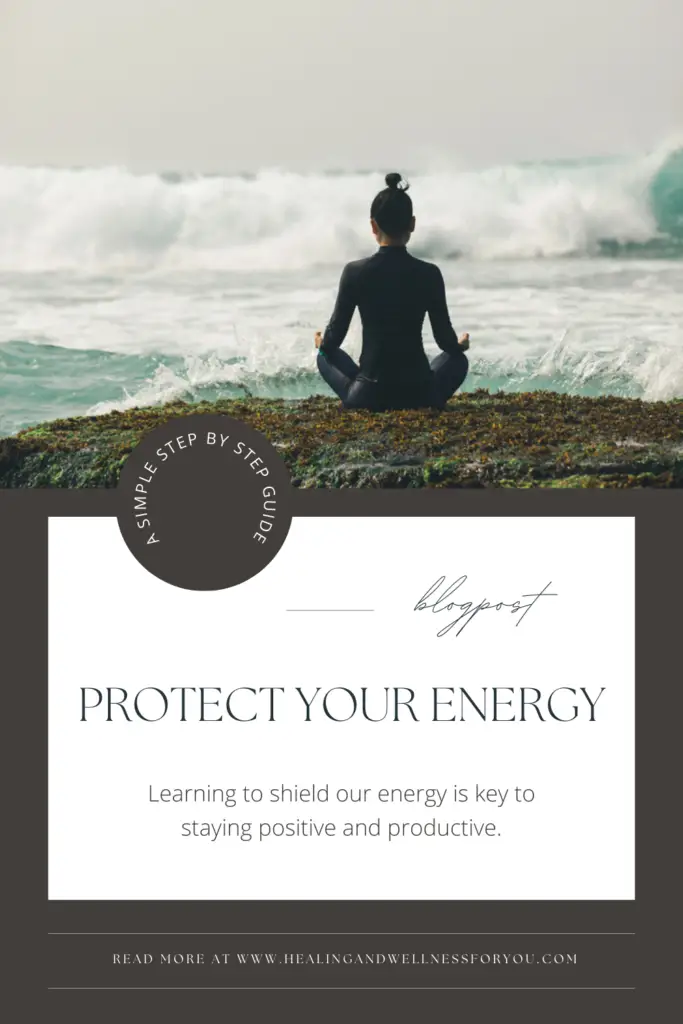Protect Your Energy: Essential Strategies to Stay Balanced and Thrive in a Chaotic World
Protect Your Energy: Essential Strategies to Stay Balanced and Thrive in a Chaotic World

Feeling drained or overwhelmed by other people’s emotions? You’re not alone. Many of us struggle to protect our energy in today’s fast-paced world. We’re constantly bombarded with information, demands, and negative energy that can leave us feeling exhausted.
Learning to protect your energy is key to staying positive and productive.
It’s all about setting healthy boundaries, taking care of ourselves, and being mindful of the people and situations that impact our lives. By protecting our energy, we can feel more balanced and have a sense of control over our lives.
Let’s explore some simple yet powerful ways to protect our energy. From setting clear boundaries to using visualization techniques, these tips will help us stay centered and avoid feeling depleted. Let’s dive in and discover how to keep our energy tank full!
Understanding Energy Protection: Why It Matters
Safeguarding our energy helps us stay balanced and healthy. It keeps us removed from negative influences that can drain our energy.
Energy Protection And Its Role In Maintaining Balance And Well-Being
Energy protection is like a shield for our mind and body. It guards us against harmful energies from people and places around us. This shield keeps our energy strong and positive.
When we protect our energy, we feel better. We have more focus and joy in life. It’s easier to deal with stress and stay calm.
Energy protection also helps us healthily connect with others. We can be kind and caring without overly consuming others’ energy.
Explanation Of How Energy Drains Happen
Energy drains can occur in various ways. Negative thoughts or feelings from others can impact us, and stressful situations at work or home can also deplete our energy. Often, energy drains happen when we become overly consumed by someone else’s energy.
Certain places might impact us with a heavy or sad feeling. Spending too much time on social media or doom-scrolling can leave us drained.
Negative thoughts and worries can also drain our energy. When we don’t care for ourselves, like not getting enough sleep or eating poorly, we become more open to energy drains.
Importance Of Energy Awareness And Recognizing Signs Of Depletion
Being aware of our energy is key to staying healthy. We need to pay attention to how we feel throughout the day. This helps us spot when our energy is getting low and allows us to recharge our battery.
Signs of energy depletion include feeling tired, cranky, or overwhelmed. We might have trouble focusing or feel less excited about things we usually enjoy.
We can take steps to protect our energy by noticing these signs early. We can rest, do activities that make us happy, or recharge in nature.
When we keep our energy firm, we can better help others and enjoy our lives.
Setting Boundaries: The Foundation of Energy Protection

Boundaries are key to safeguarding our personal energy. They help us decide what we let in and what we keep out. Setting clear limits in our physical space, emotions, and digital life can make a big difference in how we feel each day.
Boundaries As A Primary Way To Protect Personal Energy
Boundaries act like a shield for our energy. They let us choose how we spend our time and who we spend it with. Healthy boundaries are essential because they help us keep our sense of self while dealing with others.
When we don’t set limits, we might say yes too much or feel drained. This can lead to feeling used or worn out. Good boundaries help us:
- Save our energy
- Stay emotionally well
- Avoid feeling resentful and defeated
By setting clear boundaries, we show respect for ourselves and teach others how to treat us. This helps us build better relationships and feel more in control of our lives.
Physical Boundaries: Tips For Protecting Your Personal Space
Our physical space is important for our well-being. Here are some ways to set good physical boundaries:
- Speak up about personal space (remember, clear is kind)
- Use body language to show limits
- Create a comfy home workspace
We can also set rules about touching. It’s okay to tell people we don’t want hugs or handshakes. At work, we might close our office door when we need quiet time.
In public, we can choose seats that give us space. At home, we can have areas that are just for us. These small steps may help us feel safe and comfortable in our surroundings.
Emotional Boundaries: How To Manage Emotional Energy
Emotional boundaries help us handle our feelings and those of others. They stop us from taking on too much emotional weight. Here’s how we can set good emotional limits:
- Say no to things that don’t feel right
- Share feelings without fear
- Don’t take on others’ problems as our own (this is often what drains our energy the most)
It’s important to know that we’re not responsible for fixing everyone’s issues. We can be an empathetic witness without getting too wrapped up in their emotions.
We should also be clear about what we will and won’t accept from others. This might mean telling a friend we can’t always be available to talk or asking a family member to respect our choices.
Digital Boundaries: Importance Of Controlling Screen Time
Our digital lives can drain our energy if we’re not careful. Setting digital boundaries helps us stay balanced. Here are some tips:
- Set specific times for checking emails and messages
- Use “Do Not Disturb” mode on our phones
- Take breaks from social media
- Be careful how often you doom scroll
We can also limit who we connect with online. It’s okay to unfollow accounts that make us feel bad. We might choose to turn off notifications for some apps to reduce distractions.
Creating tech-free zones in our homes can help too. This could be the dinner table or bedroom. By controlling our screen time, we make more space for real-life connections and activities that boost our energy.
Practicing Mindfulness to Stay Grounded
Mindfulness helps us protect our energy and stay balanced. We can use simple techniques to calm our minds and feel more present in our daily lives.
Mindfulness As A Tool To Stay Present
Mindfulness is about paying attention to the present moment. It helps us focus on what’s happening right now instead of worrying about the past or future. When we practice mindfulness, we stay grounded and centered.
We can start by noticing our thoughts and feelings without judging them. This makes us more aware of our experiences. Mindfulness also helps us notice the world around us more clearly.
Regular practice can reduce stress and improve our mood. It gives us a way to step back from busy thoughts and find calm. Even a few minutes of mindfulness each day can make a big difference in how we feel.
Breathing Techniques: Simple Exercises To Recenter
Breathing exercises are an easy way to practice mindfulness. We can do them anywhere, anytime.
Here’s a simple technique to try:
- Sit comfortably and close your eyes.
- Take a deep breath in through your nose for 4 counts.
- Hold it for 4 counts.
- Breathe out slowly through your mouth for 8 counts.
- Repeat this 5-10 times.
This 4-7-8 breathing technique can help calm our minds quickly. We can also try counting our breaths or focusing on how our body feels as we breathe.
Another easy exercise is to take three deep breaths whenever we feel stressed. This simple act can help us pause and reset our thoughts.
Grounding Practices: Techniques To Reduce Stress
Grounding practices help us connect with our surroundings and reduce stress. They bring our attention to the present moment. Here are some effective grounding techniques:
- The 5-4-3-2-1 method: Name 5 things we can see, 4 we can touch, 3 we can hear, 2 we can smell, and 1 we can taste.
- Body scan: Start at our toes and slowly move up, noticing how each part of our body feels.
- Outdoor walk: Pay attention to the sights, sounds, and smells around us.
We can also try holding an ice cube or smelling a strong scent like peppermint. These physical sensations can quickly bring us back to the present moment.
Regular practice of these techniques can help us feel more grounded and less stressed throughout the day – which aids in maintaining our energy.
Surrounding Yourself with Positive Energy

Positive energy can transform our lives. It helps us feel happier and more motivated.
Importance Of Cultivating A Positive Environment
A positive environment boosts our mood and energy. It helps us stay optimistic and tackle challenges with confidence. When we’re surrounded by positivity, we’re more likely to achieve our goals.
Positive spaces can reduce stress and improve our health. They encourage creativity and productivity. We feel more inspired and motivated in uplifting surroundings.
Creating a positive environment takes effort, but it’s worth it. It can lead to better relationships and more success in life. We can start small by making simple changes to our daily routines and spaces.
Choosing Supportive Relationships
The people we spend time with greatly impact our energy. Supportive friends and family can lift us up and encourage our growth. They celebrate our successes and help us through tough times.
We should seek out relationships that make us feel good. Look for people who are kind, honest, and positive. These connections can boost our confidence and happiness.
It’s okay to limit time with negative people. We can politely distance ourselves from those who drain our energy. Instead, we can focus on nurturing relationships that bring out the best in us.
Building a network of positive people takes time. We can join clubs, volunteer, or take classes to meet like-minded individuals. Online communities can also be great sources of support and positivity.
Positive Space: Suggestions For Creating A Calming Atmosphere
Our physical environment affects our mood and energy. Here are some tips to create a calming, positive space:
- Add plants to purify the air and bring nature indoors
- Use soft, warm lighting to create a cozy atmosphere
- Choose calming colors like blues and greens for walls or decor
- Play soothing music or nature sounds
- Keep spaces clutter-free and organized
We can also create a special corner for relaxation. This could be a comfy chair with a soft blanket and good books. Or a meditation space with cushions and candles.
Scents can significantly impact our mood. We could use essential oils or scented candles with calming fragrances like lavender or vanilla.
Daily Positivity Practice: Incorporating Positivity
Adding positive habits to our daily routine can make a big difference. Here are some ideas:
- Start the day with gratitude. List three things we’re thankful for each morning.
- Use positive affirmations. Repeat uplifting phrases to boost our mood.
- Practice mindfulness or meditation. Even a few minutes can help us feel calmer.
- Exercise regularly. Physical activity releases feel-good hormones.
We can also keep a positive journal. Write down good things that happen each day, no matter how small. This helps train our brains to notice the positive.
Reading inspiring books or listening to uplifting podcasts can fill our minds with positive ideas. We can set aside time each day for this type of content.
Remember, small changes can add up.
Self-Care Rituals to Recharge and Rejuvenate
Taking time for ourselves is key to feeling our best.
Self-Care As A Key Practice
Self-care helps us feel good and stay healthy. It’s not selfish – it’s needed to keep us going. We can think of it like filling up our car with gas. Without it, we run out of fuel.
Self-care means doing things that make us feel cared for. This can be different for each person, but what matters is that we do it often.
Regular self-care can lower stress and improve mood. It may also help us sleep better and boost our immune system. When we care for ourselves, we can also care for others better.
Physical Self-Care: Importance Of Rest And Nutrition
Our bodies need good care to work well. Rest and healthy food are significant parts of this.
Getting enough sleep is key. Most adults need 7-9 hours each night. A good sleep routine can help. We can try to go to bed and wake up simultaneously each day.
Eating well gives our bodies the fuel they need. We can aim for lots of fruits and veggies. Drinking water throughout the day is also essential.
Exercise is another form of physical self-care. Even a short walk can make us feel better. We can find ways to move that we enjoy, like dancing or gardening (don’t be afraid to get creative).
Mental And Emotional Self-Care: Suggestions For Relaxing Activities
Mental health is just as important as physical health.
There are many ways to relax and calm our thoughts.
Reading a book or listening to music can be very soothing. We might try coloring or doing puzzles. These quiet activities can help us unwind.
Talking with friends or family can lift our spirits. We can also express our feelings by writing in a journal. Mindfulness practices like deep breathing or meditation can reduce stress, too.
It’s okay to say no to things that drain us. Setting limits on our time and energy is part of self-care.
Energetic Self-Care: Practices To Restore And Protect Energy Levels
Our energy needs care, too. We can use special practices to feel more lively and protected.
Nature can recharge us. A walk in the park or sitting by a tree can boost our mood, and even looking at plants inside can help.
We can create a cozy space at home that feels safe and calm. This might be a comfy chair with soft blankets or a quiet corner for reading.
Limiting screen time, especially before bed, can improve our energy. We might try a digital detox for a day or set phone-free times.
Gratitude practices can lift our spirits. We can write down three good things each day or tell someone we’re thankful for them.
Limiting Exposure to Energy Drains

Protecting our energy means being mindful of what drains us. We can take steps to limit our contact with energy-sapping activities and people. This helps us feel more positive and energized each day.
Recognizing And Reducing Exposure To Energy-Draining Activities
We all have things that drain our energy. It’s important to spot these activities and cut back on them. Common energy drains include:
- Watching too much TV
- Spending hours on our phones
- Saying yes to too many commitments
- Putting off important tasks
To reduce exposure, we can try:
- Setting time limits for TV and phone use
- Learning to say no to extra tasks
- Tackling important jobs first thing in the day
Doing this frees up time for activities that give us energy, such as hobbies, exercise, or time with loved ones.
Social Media Detox: Importance Of Regular Breaks
Social media can be a significant energy drain. We might not notice how much it affects us. Taking breaks from social media can help us feel better. Here’s why it’s good:
- It reduces stress and anxiety
- We compare ourselves to others less
- We have more time for real-life connections
- Our sleep often improves
We can start small with our detox. We could go without social media for one day each week or limit our exposure to specific times. The key is to be consistent and notice how we feel.
Avoiding Toxic Environments: Tips For Limiting Time
Toxic places can really drain our energy. These might be work, social, or family settings. We can’t always avoid them altogether, but we can limit our time there.
Here are some tips:
- Set clear boundaries on how long we’ll stay
- Plan an exit strategy before we go
- Take short breaks if we have to be there for a while
- Find a quiet spot to recharge if needed
We should also spend more time in places that make us feel good. This balances out the effects of toxic environments.
Recognizing Energy Vampires: Guide To Identifying And Distancing
Energy vampires are people who drain our energy. They might not mean to, but being around them makes us tired. Signs of an energy vampire include:
- Always having problems but never taking advice
- Making everything about them
- Constant complaining
- Never seeming happy for others
To deal with energy vampires, we can:
- Limit our time with them
- Set clear boundaries on what we’ll discuss
- Practice saying no to their demands
- Spend more time with uplifting people
It’s okay to distance ourselves from energy vampires. Our well-being matters, and we deserve to feel energized and happy.
Practicing Energy Cleansing Techniques
Energy cleansing helps us feel better and more balanced. We can use different methods to clear negative energy and bring in positive vibes. Let’s explore some helpful practices.
Overview Of Energy-Cleansing Practices
Energy cleansing is a way to remove negative energy from our bodies and spaces. Many techniques, including meditation, smudging, and crystal use, can be used.
These practices can make us feel lighter and more at peace, help us sleep better, and reduce stress.
We can cleanse our energy daily or whenever we feel the need. Finding the best methods is essential, so we should try a few different ones to see what feels right.
Meditative Visualization: Techniques To Release Negative Energy
Meditation is a powerful tool for energy cleansing. We can use our minds to picture negative energy leaving our bodies.
Here’s a simple technique we can try:
- Sit in a quiet place and close your eyes.
- Take deep breaths and relax your body.
- Picture a bright light above our heads.
- Imagine this light flowing through us, pushing out dark or heavy energy.
- See the negative energy leaving through our feet and into the ground.
We can do this for 5-10 minutes each day. With practice, it gets easier to feel the energy shift.
Smudging And Cleansing Rituals
Smudging is an old practice that uses smoke to clear negative energy. Sage is often used, but other herbs work as well.
To smudge:
- Light the end of a sage bundle.
- Let it smoke and blow out the flame.
- Walk around our space, waving the smoke into corners.
- Open windows to let the negative energy out.
If we can’t use smoke, we can spray salt water instead. This works well for clearing spaces, too.
We can smudge our homes weekly or as needed to keep the energy fresh.
Sound Healing: Explanation Of Using Sound To Restore Balance
Sound healing uses vibrations to clear and balance our energy. We can use singing bowls, bells, or even our own voices.
Here are some ways to try sound healing:
- Play a singing bowl and focus on the sound.
- Use a tuning fork on different parts of our body.
- Chant “Om” or other simple sounds.
The vibrations help break up stuck energy in our bodies. This can leave us feeling more open and relaxed.
We can do sound healing for a few minutes each day. It’s a nice way to start or end our day on a positive note.
Conclusion
Protecting your energy is essential for maintaining balance, positivity, and productivity in your life. You can safeguard your vitality by setting clear boundaries, practicing mindfulness, and surrounding yourself with uplifting people and environments. Incorporating regular self-care rituals ensures your energy remains replenished, allowing you to navigate life with greater ease and control. Prioritize these habits, and watch how they empower you to stay centered and resilient.

How can I shield myself from negative vibes?
Setting clear boundaries can shield us from negative vibes. This means learning to say no to people or situations that drain us.
We can also use visualization techniques. Picture a protective bubble or shield around yourself to block out negative energy.
What are some effective strategies to maintain positive energy?
Practicing gratitude is a powerful way to maintain positive energy. We can start each day by listing three things we’re thankful for.
Regular exercise and a healthy diet also boost our energy levels. Even a short daily walk can significantly affect our mood and outlook.
How can the concept of ‘energy protection’ influence daily life?
Energy protection can help us feel more balanced and centered throughout the day. We might find ourselves less affected by others’ moods or stressful situations.
It can also improve our relationships. When we protect our energy, we can better support others without feeling drained.
What methods can empaths use to safeguard their energy?
Empaths can benefit from regular alone time to recharge. Set aside quiet time each day for meditation or relaxation.
Nature walks can also help empaths reset. Spending time outdoors can help us feel grounded and refreshed.
What are some practical tips for spiritual energy protection?
Meditation and mindfulness are powerful tools for protecting spiritual energy. We can start with just a few minutes of quiet reflection each day.
Cleansing rituals, like burning sage or using salt baths, can also help clear negative energy. These practices can leave us feeling refreshed and protected.
About the Author
Taylor O’Horo, Psychology Major.

Hi! I am Taylor O’Horo, marketing specialist and biofeedback technician. I am a mom to three kiddos – a first responder wife and Veteran spouse. I recently earned my bachelor’s in psychology from Arizona State University and plan to earn my master’s in counseling. Everyone has a story, and I am no different. Overcoming the adversities, I’ve experienced has helped me to learn more about resilience and how to be there for others. I believe all humans can heal!







